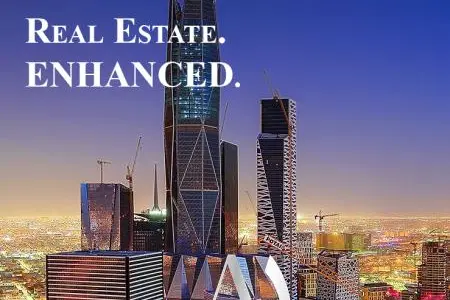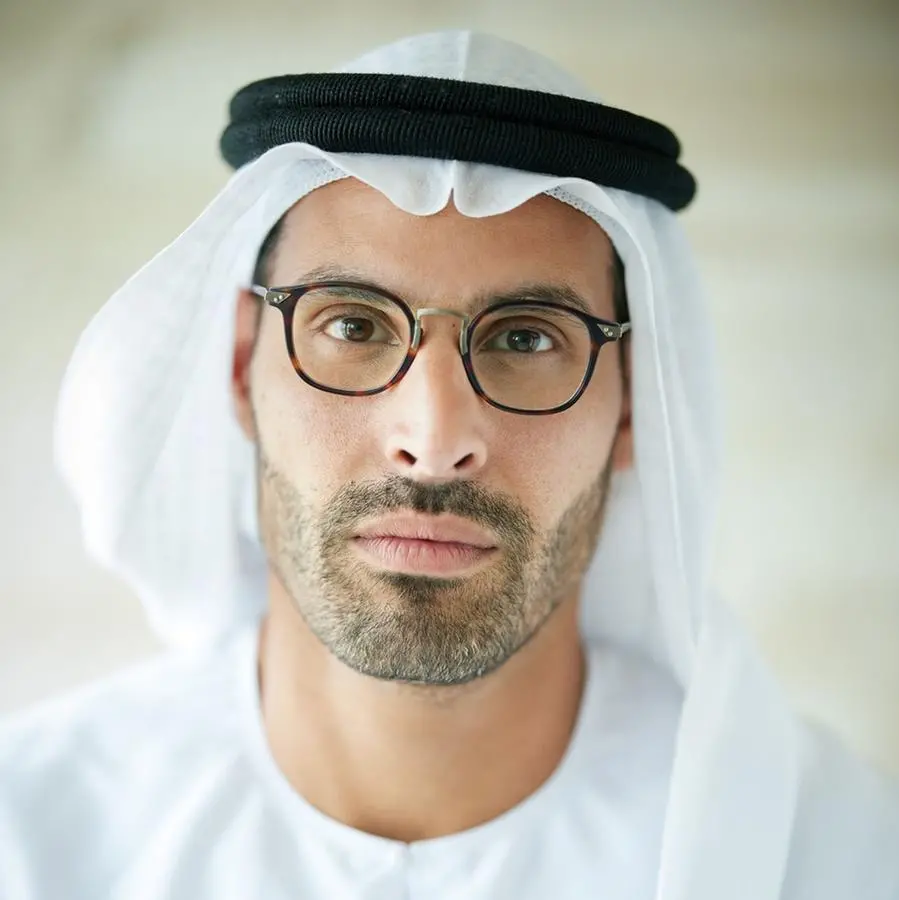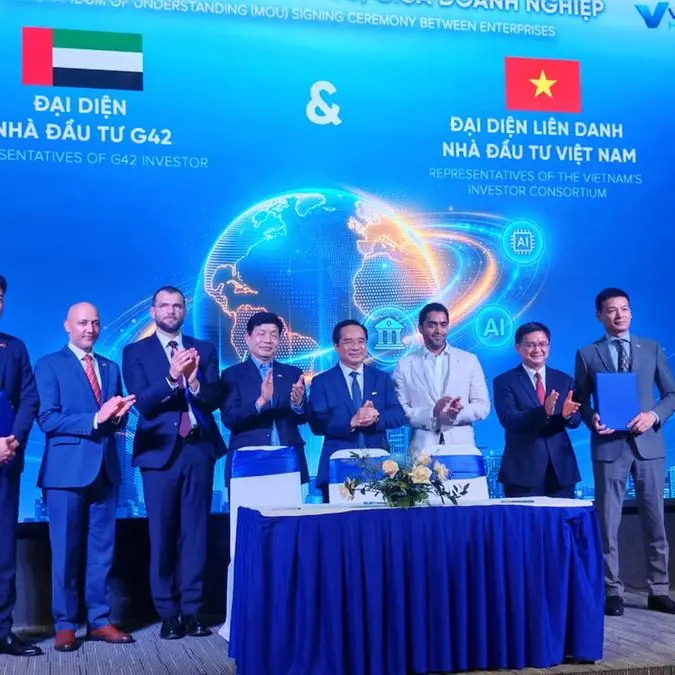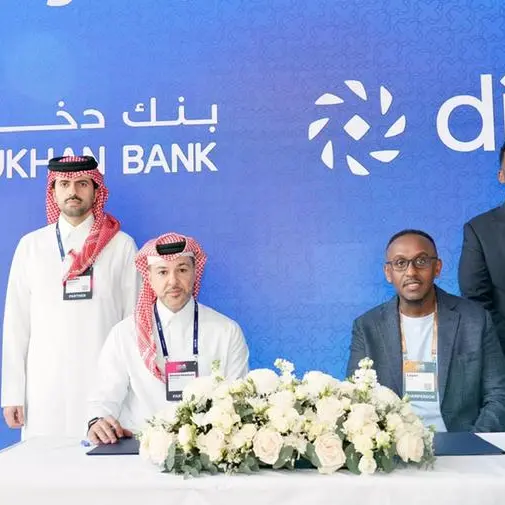PHOTO
Global real estate advisory firm Alpha1Estates said in its latest report on Monday that the Middle East’s top real estate institutional investors are on a global spending spree with increased asset diversification, accelerating in the post-COVID 19 period.
Alpha1Estates, which works with both international real estate project owners and developers seeking capital from the Middle East and from Middle East real estate institutional investors seeking value-add opportunities, said that its analytical report focuses on the strategic investments of the 25 top-tier most active real estate institutional investors from the Middle East, from since 2017 through the COVID-19 Pandemic in 2020 to date in 2021.
“Whilst the bulk of institutional investment in real estate from the Middle East is in the UK, US and Europe across mainstream asset classes driven by cash returns that are solid, secure and sustainable, there are increasing opportunities to match this capital liquidity with assets from around the world in both these and emerging classes, dependent on value and yield,” said Talal Mahmood Malik Al Alawi, Alpha1Estates Chairman and CEO.
“This can potentially include extending North American market reach to Canada, strategic investments in destinations in Asia with links to the UK like Singapore, as well as emerging asset classes linked to the real economy and its digitalization such as in e-commerce from warehouses and retail distribution centres to new critical infrastructure assets like data centres.”
The top 25 real estate institutional investors which the study focused on are all on the Arabian Peninsula, specifically Saudi Arabia, United Arab Emirates, Qatar, Kuwait, Bahrain and Oman from the Gulf Co-operation Council (GCC), the region which accounts for 90% of all Middle East investments, said Alpha1Estates.
Middle East real estate institutional investments are across the value chain, which Alpha1Estates has advised on of a value of over USD$2 billion since 2018, and are diversified, from sovereign-led purchases of trophy assets of famous hotels and mansions to both traditional real estate assets like residential and office space and emerging asset classes like student accommodation.
Sovereign-led real estate investment during the study’s period from the Middle East in London has included the historic Ritz Hotel for USD $1 billion in 2020, at the onset of the global COVID-19 pandemic, and in New York has included the landmark Plaza Hotel for $600 million in 2020.
In the Middle East, Alpha1Estates Chairman and CEO Talal Mahmood Malik Al-Alawi has previously met HRH Prince Salman bin Hamad Al Khalifa, Crown Prince and Prime Minister of the Kingdom of Bahrain; HRH Prince Mohammed bin Salman Al Saud, Crown Prince, Deputy Prime Minister and Minister of Defence of the Kingdom of Saudi Arabia; and HH Sheikh Mohammed bin Rashid Al Maktoum, UAE Vice-President, Prime Minister and Minister if Defence and Ruler of Dubai.
Mr. Malik has also been recognised as a strategic adviser by the Royal Courts of the Arabian Peninsula, building relationships with all six GCC Royal Courts during his tenure as a senior management adviser in the region for the prestigious management consulting firm, McKinsey & Company from 2008 to 2014, with strengthening of such relationships since 2014 to date as a trusted adviser.
DESTINATION DIVERSIFICATION
As per Alpha1Estates’ report, the top destinations for real estate institutional investment from the Middle East are the UK and the US, with over 30 percent of regional active investors focused on the two Transatlantic countries.
With the UK having a priority advantage, London remains an evergreen favourite, but more regional focus in the UK is underway as well looking for higher comparative yields on assets such as offices, retail and logistics, such as in Manchester and Belfast, Northern Ireland.
Similarly, in the U.S., global cities like New York naturally feature but with strategic investments also in states like Connecticut, Virginia and Pennsylvania.
Europe, excluding the UK, is the prime region for Middle East real estate institutional investment, with nearly half of the active investors focused on the region, with most investments in France, naturally Paris, Germany, especially Frankfurt and Düsseldorf, as well as the Netherlands with transactions in Ireland, Greece and Hungary also recorded.
“Although from 2020 many companies moved to remote work due to the pandemic, we witnessed some major acquisitions in office space in European markets,” said Diaa Salah, Vice-President – Global Investments, Alpha1Estates.
“European real estate markets in particular are attracting more institutional investors from the Middle East, and we expect an uplift in transactions in 2022.”
Within the Arabian Peninsula’s Gulf Co-operation Council countries, more than 50 percent of Middle East investors also focus on regional activity particularly in the likes of the global city of Dubai, UAE, or in some cases, particularly in Saudi Arabia or Bahrain, on market-dominating national investments.
In Asia-Pacific, transactions have been recorded in India and Australia, demonstrating no major pivot to Asia just yet but existing potential.
“Asia, with its close proximity and traditional links to the Middle East, has significant growth potential for institutional investors, particularly with the likes of Singapore and Hong Kong, but start from a nascent position whilst Chinese investors by comparison naturally have a strong well-established base,” said Mr. Malik.
ASSET DIVERSIFICATION
Middle East real estate investors have been steadily accelerating the asset diversification of their portfolios, with the bulk in traditional mainstream assets but allocations in more emerging asset classes as they relate to the real economy and its changing cyclical nature.
In mainstream real estate assets, over 40% of Middle East real estate institutional investors target residential and office targets, followed by 28% on commercial and industrial assets and 24% on hotels and hospitality assets (trophy assets not included) and retail assets.
“Bricks and mortar office space post-COVID can actually increase cumulatively, based on greater entrepreneurial activity by both entrepreneurs and corporates as they enter growing sectors with new ventures, providing the incentives are there,” said Mr. Malik.
In emerging asset classes, Middle East investors are increasing their allocations, particularly with generation-focus assets such as 16% of investors focused on student accomodation with a sprinkling of strategic investments in senior living, healthcare and wellness, and life sciences.
“E-Commerce - combining retail, commerce, digitalization, industrial, labour and logistics assets - is a key regional and global growth sector, with Middle Eastern real estate institutional investors on the cusp of increasing their investments in retail warehouses, distribution centres, labour accomodation and data centres, both in current low-supply assets as well as funding new developments to meet emerging demand,” said Mr. Malik.
NATIONAL FOCUS
Particularly during and then beyond the COVID-19 period, some real estate investors in the Middle East have also refocused some of investments on their country and region, based on its strategic location, between Europe, Africa and Asia and its central global role in energy, trade and supply chain logistics.
According to Lloyds in 2021, on the Gulf of the Middle East, Jebel Ali Port in Dubai, UAE, ranks at 11 in the world’s top 100 ports by throughput, with Salalah Port in Oman at 43, and Al Khalifa Port in Abu Dhabi, UAE, at 56, whilst on the Mediterranean, Alexandria Port in Egypt ranks at 99.
Saudi Arabia’s breadth gives it strategic reach with Dammam Port on the Gulf at 93, but also dominating port throughput on the Red Sea, which accounts for 10% of world trade traffic, with Jeddah Islamic Port in Saudi Arabia at 37 and King Abdullah Port at 84, the latter recognised by the World Bank and IHS Markit as the second most efficient container port in the world in 2020, under CEO Jay New, after Yokohama Port in Japan.
Specifically in Saudi Arabia, the Government in January 2021 announced it is investing USD $220 billion in developing Riyadh over the next decade to make it into one of the world’s biggest 10 cities, and in the Western province, in August 2021, it also announced a 15-year heritage restoration of the Red Sea City of Jeddah, the gateway to the two Holy Cities of Makkah and Madinah, where many of the largest REITs (real estate investment trusts) are focused on.
In February 2021, Alpha1Estates announced that its real estate index for Makkah and Madinah had fallen by 7.6% in 2020, as the COVID-19 pandemic and global lockdown brought travel to the Holy Cities to a standstill.
Saudi Arabia also has several giga-projects on the Red Sea under its sovereign wealth fund, the Public Investment Fund (PIF), including King Abdullah Economic City (KAEC), which is, as of the fourth quarter of 2021, PIF’s most advanced giga-project, the Red Sea Development Project and Amaala, as well as the future-oriented city of NEOM. Talal Malik is a regular attendee of PIF’s Future Investment Initiative conference, one of 150 special guests invited to physically attend the conference’s fourth edition in Riyadh on January 27-28, 2021, and is scheduled to attend the fifth edition on October 25-28, 2021.
Alpha1Estates launched in 2006 to become the world's first company to market Saudi Arabian property globally, has worked with the three of the five largest real estate developers in Saudi Arabia, five of the biggest in the Middle East and on global real estate transactions since 2018 ranging from $632 million to $1.5 billion for royal family offices, ultra-high net-worth individuals (UHNWIs), sovereign institutions and real estate institutional investors.
ABOUT ALPHA1ESTATES INTERNATIONAL
Alpha1Estates ™ (Real Estate. ENHANCED) is a a global real estate advisory, investment and development firm that focuses on major and fast-developing emerging markets, milestone prestigious projects and world-class trophy assets. It has also been primarily focused on facilitating capital investments from and to emerging real estate markets, particularly the Middle East. Please visit www.Alpha1Estates.com
© Press Release 2021
Disclaimer: The contents of this press release was provided from an external third party provider. This website is not responsible for, and does not control, such external content. This content is provided on an “as is” and “as available” basis and has not been edited in any way. Neither this website nor our affiliates guarantee the accuracy of or endorse the views or opinions expressed in this press release.
The press release is provided for informational purposes only. The content does not provide tax, legal or investment advice or opinion regarding the suitability, value or profitability of any particular security, portfolio or investment strategy. Neither this website nor our affiliates shall be liable for any errors or inaccuracies in the content, or for any actions taken by you in reliance thereon. You expressly agree that your use of the information within this article is at your sole risk.
To the fullest extent permitted by applicable law, this website, its parent company, its subsidiaries, its affiliates and the respective shareholders, directors, officers, employees, agents, advertisers, content providers and licensors will not be liable (jointly or severally) to you for any direct, indirect, consequential, special, incidental, punitive or exemplary damages, including without limitation, lost profits, lost savings and lost revenues, whether in negligence, tort, contract or any other theory of liability, even if the parties have been advised of the possibility or could have foreseen any such damages.




















